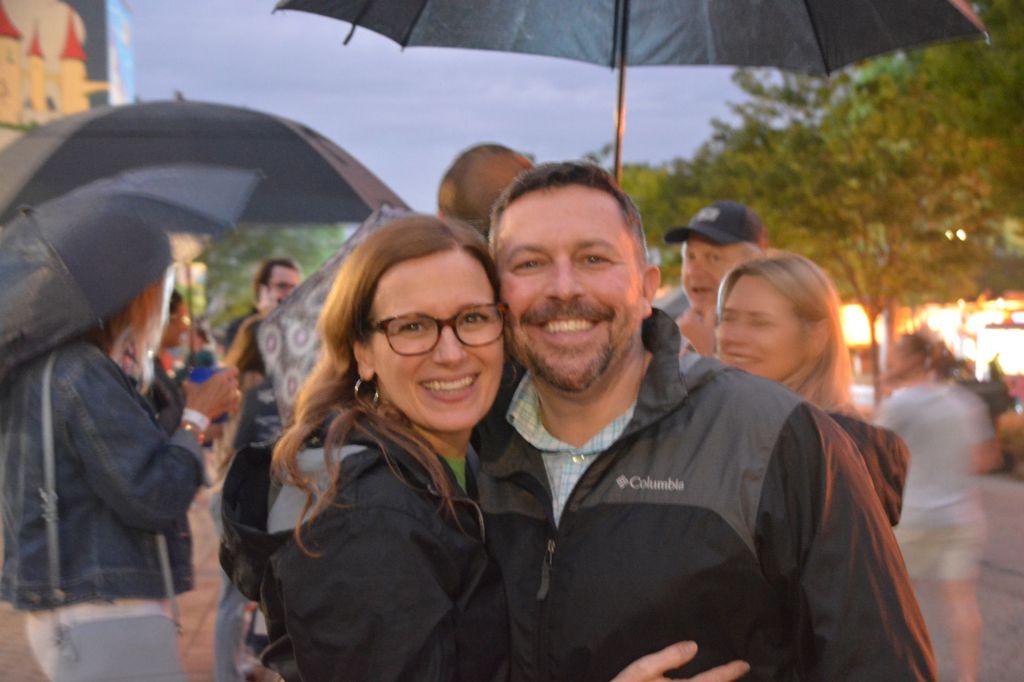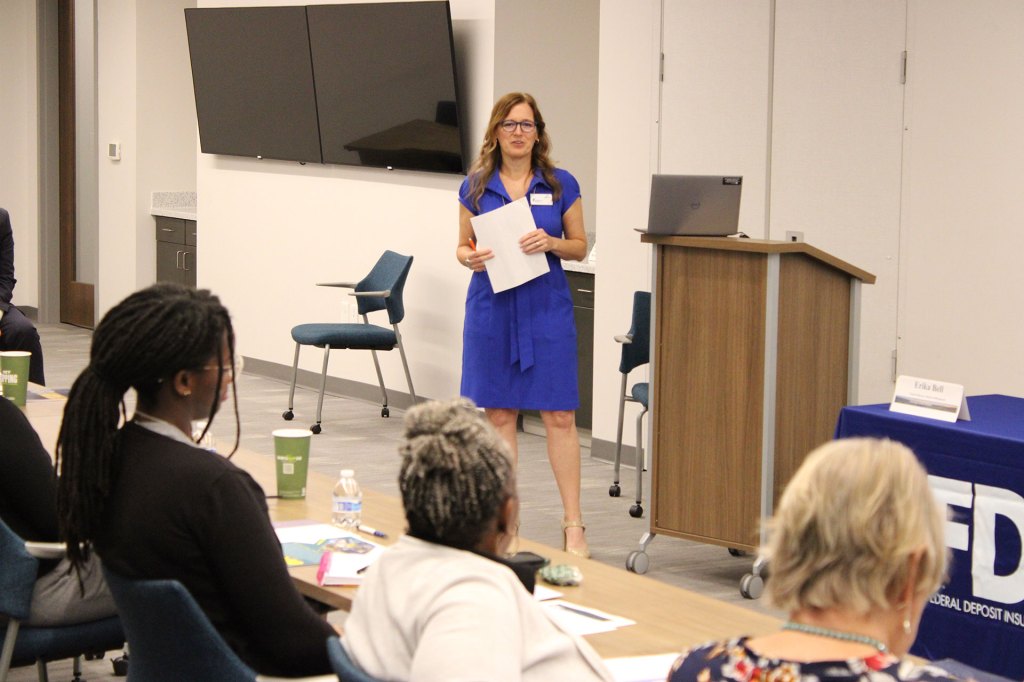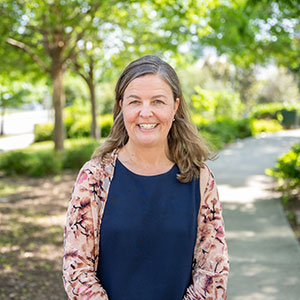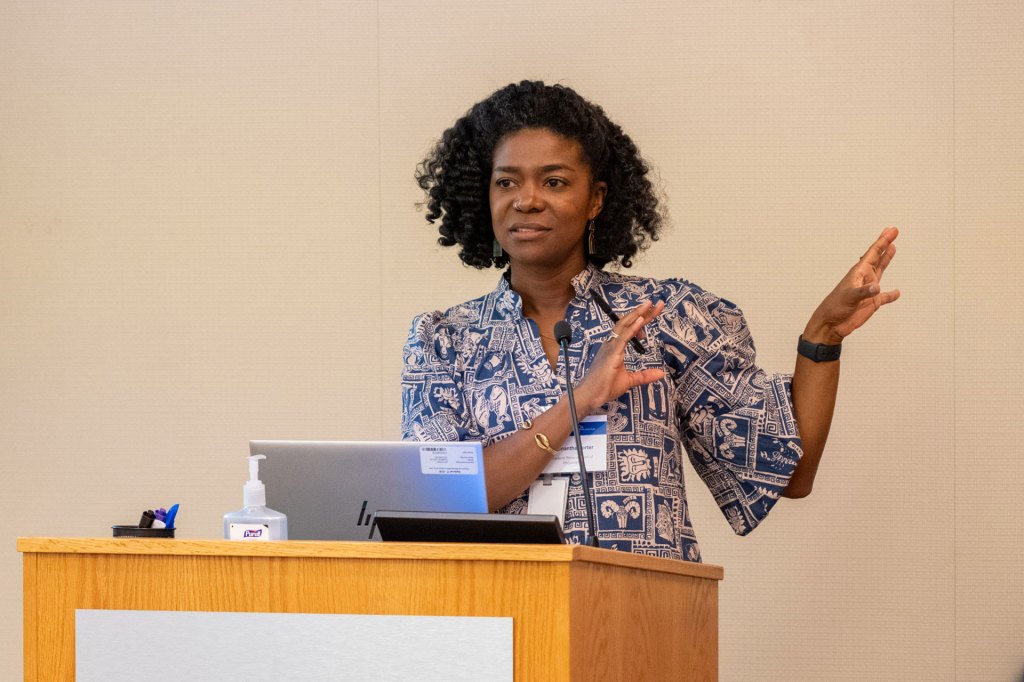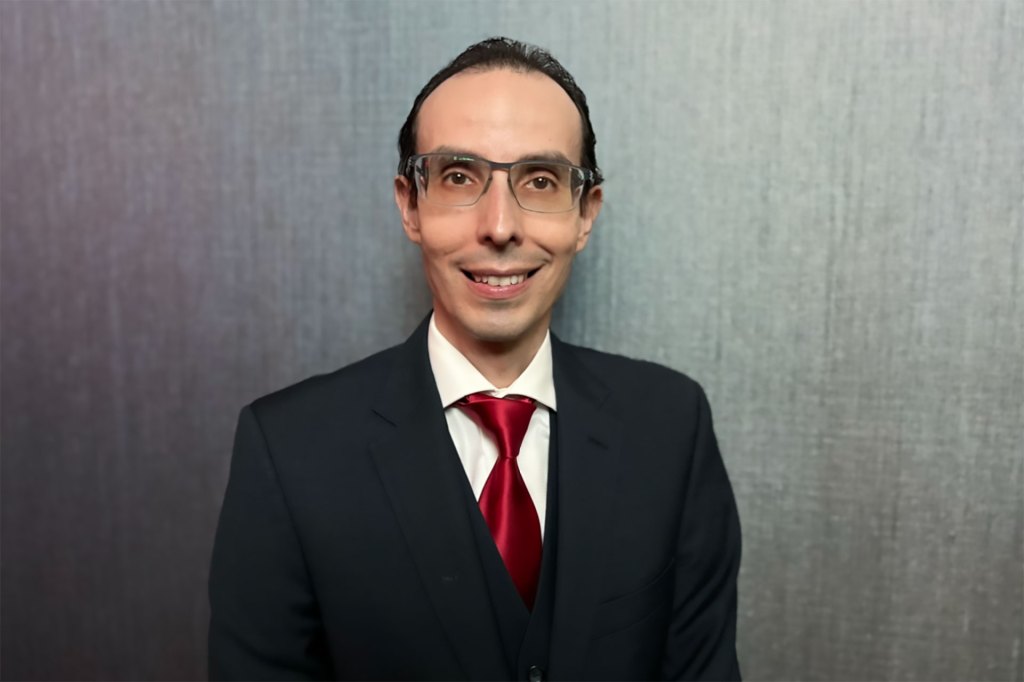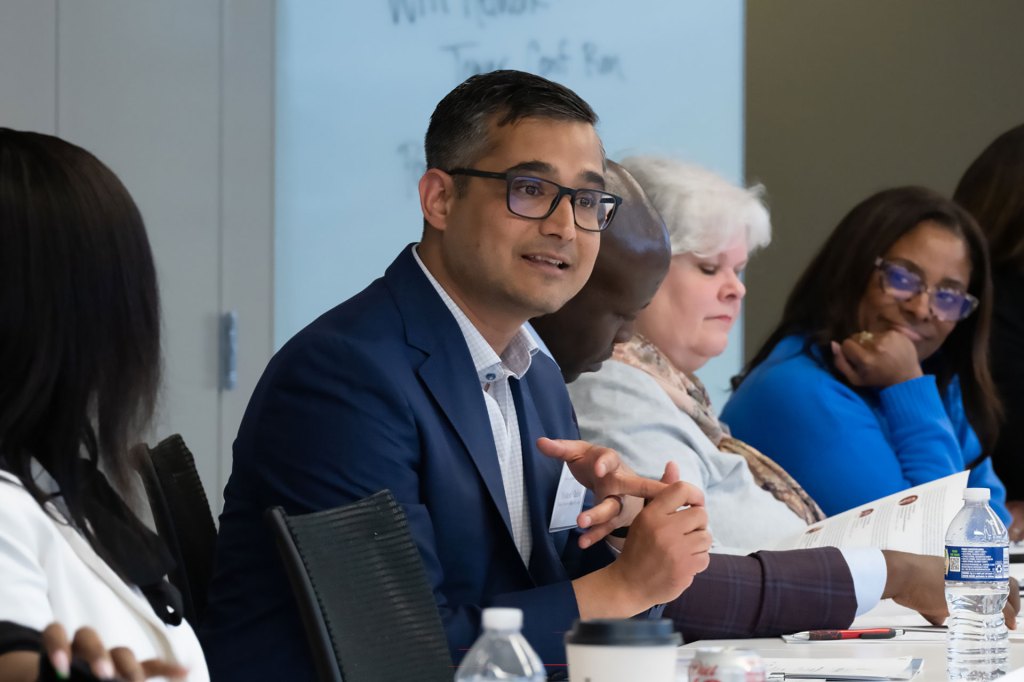Erika Bell, Community Development Regional Manager, Richmond Fed, speaking at a recent conference addressing minority small business lending gaps in South Carolina.
Photo courtesy of Bush Brunson with South Carolina Association for Community & Economic Development
Erika Bell grew up on a family farm in a tight-knit community. Her childhood stories evoke idyllic dreams of a rural upbringing: playing barefoot on a dirt road and 300 acres of land on the edge of York County, South Carolina. Though now a Charlotte suburb, back then it felt like her village.
Erika looks at the foundation laid for her by community members, from her family and teachers to the local shopkeeper. And she sees from her upbringing, grounded in local life, that everyone plays a key role in helping their communities thrive.
“Every day after school my mother took me to the thrift bread store where they sold day-old bread for a discount,” describes Erika. “And every day I’d be greeted by the lady behind the counter. She’d ask me about school, grades, friends, and family. I always felt like she cared, and I belonged. Now I wonder if she ever knew what impact she had on me. I wonder if people know the impact they have on other people.”
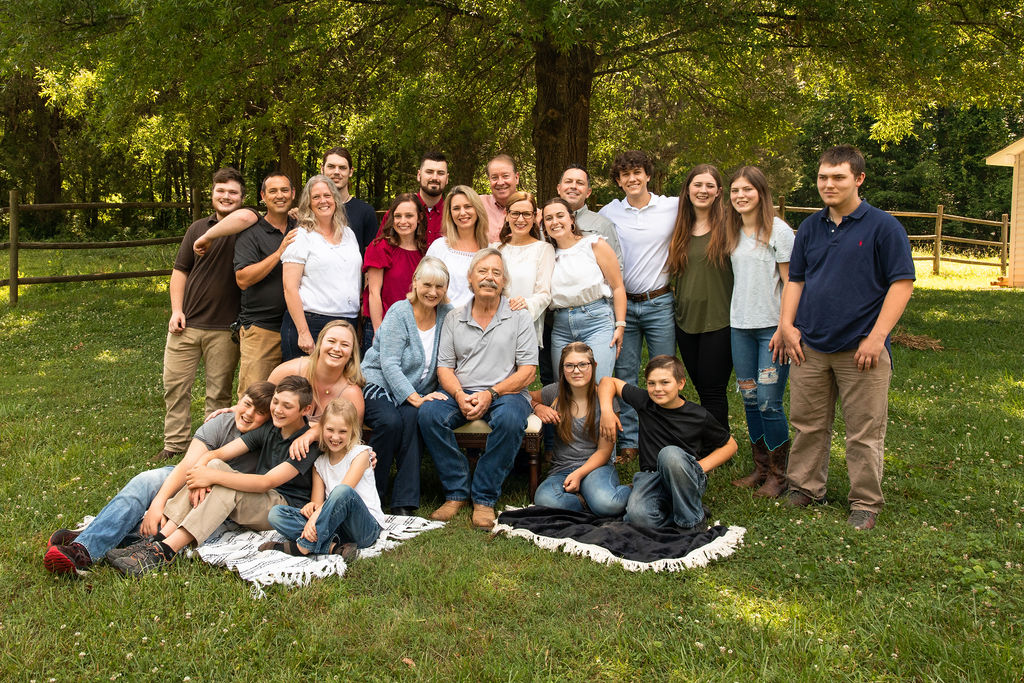
Listening to understand community needs
Erika knows that each person in the community is important and should have their voices heard. As a Community Development Regional Manager at the Federal Reserve Bank of Richmond, Erika helps amplify people’s voices. She and her colleagues talk with community members to understand their needs. They then relate community concerns to the bank’s president, Tom Barkin. He uses community perspectives to guide his monetary policy perspective, as shown in this Odd Lots podcast.
While trying to understand challenges across all populations, Erika’s team focuses on low-and-moderate income households, rural areas, and small towns. They ask questions to include community members’ voices in this conversation. For example, Erika planned a recent visit to Cherokee, North Carolina. Erika and President Barkin met with staff from the native community development investment fund (CDFI), the Sequoyah Fund, which included citizens of the Eastern Band of Cherokee Indians. They explored the questions, “What challenges is your community facing?,” “What promising solutions are on the horizon?,” and “How is the CDFI serving the community through targeted programs and lending?”
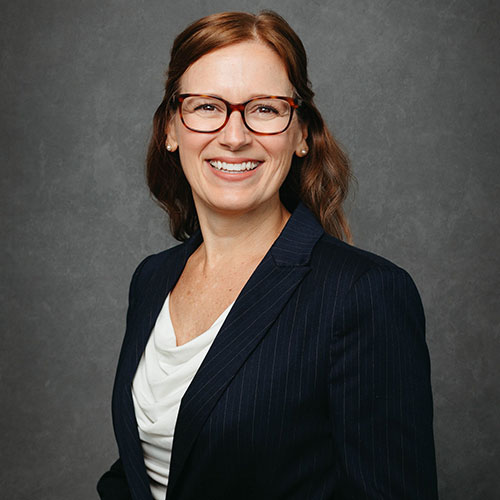
“A priority that drives my work is to amplify people’s voices – not to be their voice.”
A workplace education in meaningful community conversation
Erika joined the Richmond Fed in 2020. She brought extensive experience in nonprofit management, small business, youth development, low-and-moderate-income families, and community health.
She also knew about small business development and the importance of a skilled labor force from her father and brother. Each is an electrician with his own company.
Before joining the Fed, Erika was chief operations officer of a South Carolina YMCA (the “Y”). There she gained valuable experience working with people from the underserved local community. Erika learned to listen to and understand people dealing with daily struggles. She also had intense training around active listening, diversity, and equity. These are key skills for her current role.
At the Y, she felt “deep in the work” and could see her impact. She knew the children and families receiving scholarships and those needing after-school care whose parents used child care vouchers. She grew to understand the issues facing low-and-moderate-income families and children. And Erika saw why it was important to focus on those issues: “To help everyone function in the economy and understand that they have an important place in the community.”
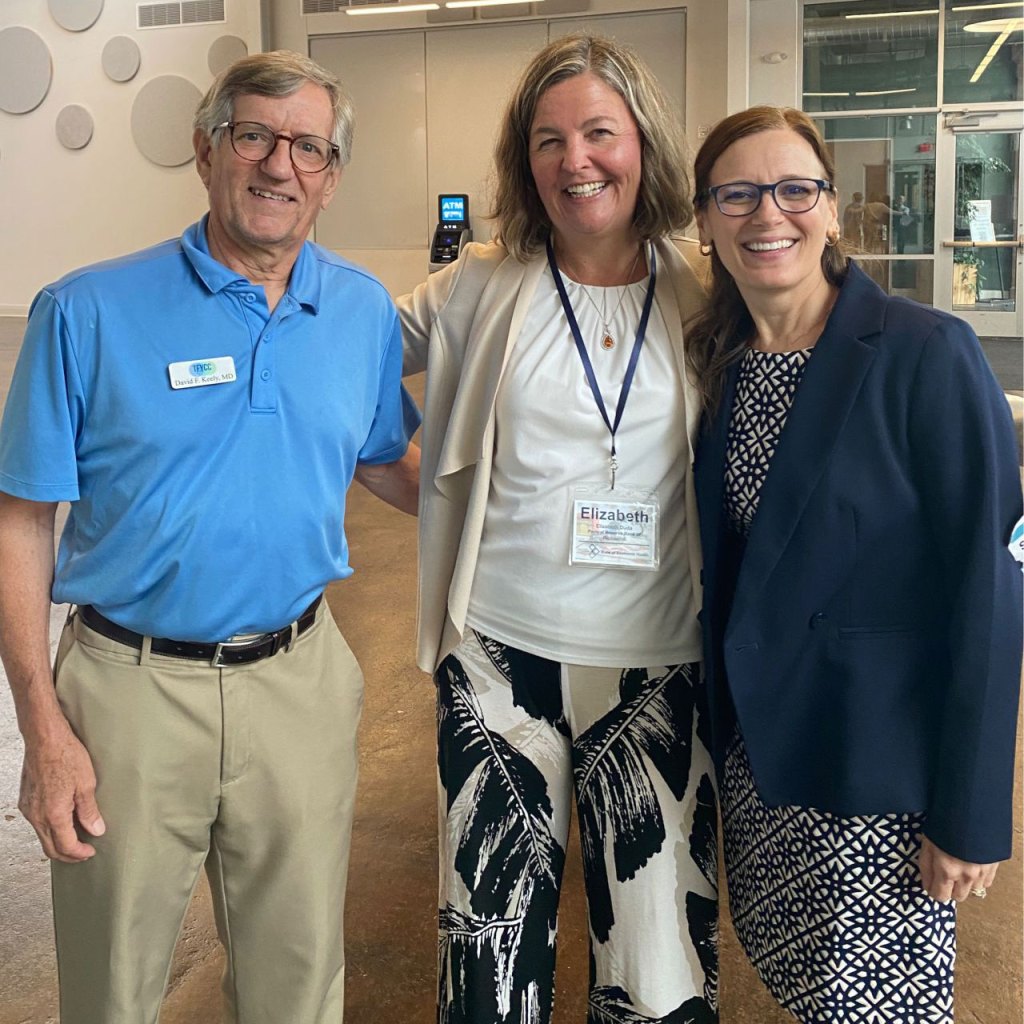
Erika worked on challenges facing families at the Y, including access to healthy food, active community environments, and the ability to work and make a livable wage. In what seemed like a “crash course in budgets” she saw how people with modest means had to make choices.
To ease one financial burden, the Y filled a child care gap. This also gave local kids access to what others more easily do – playing sports on a team, learning to swim, and being nurtured after school in a safe space. At the Y, Erika realized that all parents and caregivers want the same things for their families. This understanding is valuable to her role at the Fed.
Richmond Fed Community Development efforts are a natural fit
Erika shared three initiatives she’s working on at the Richmond Fed for which her educational, life, and work experience prepared her.
One is the Rural Investment Collaborative, which promotes economic investment in small towns and rural communities. The Richmond Fed helps train, support, and connect community leaders and funding sources. Erika’s role is to help lead a steering group of rural intermediaries.
She also helped design the program’s application. Thinking back to her nonprofit experience where she had many priorities and limited time to get them done, she knew to keep the application simple. And when almost no one had applied the day before the deadline, she knew not to worry. Nonprofit leaders often have little time to get non-core work done. And while they waited until the last minute to submit applications, they got them in before the deadline.
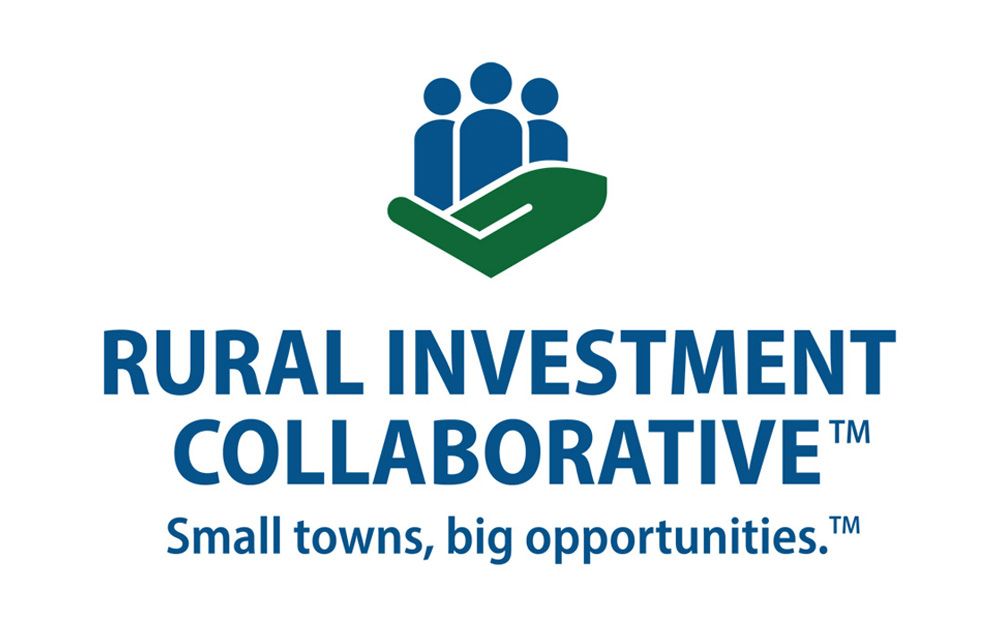
Another activity Erika works on relates to the Community Reinvestment Act (CRA). This federal law encourages banks to meet the credit needs of the communities they serve, including low-and moderate-income communities. But nonprofits and community-based organizations often don’t know how to take advantage of funding opportunities opened up to them through the CRA.
Erika knows first-hand the frustration that a nonprofit leader may feel when trying to understand CRA details. Eager to help, Erika and her Community Development team host trainings for community-based organizations and bankers to explain the regulation and encourage collaboration.
The Richmond Fed’s Community Conversations program also aligns with Erika’s passions and skills. In each conversation, Richmond Fed staff talk with business and community leaders to learn about a region’s wellbeing and needs and exchange economic updates and ideas. Erika and her community development colleagues help plan and host these meetings, which sometimes include the bank president.
From there to here
Erika’s background of growing up in a rural community around small businesses and then working in a nonprofit clearly set her up well for her current work. She is equipped to better understand the people she works with in communities every day to help meet the Richmond Fed’s goals of supporting rural communities and small towns.
How does she unwind when the day’s work is done? Erika loves to travel and constantly seeks out the beach or mountains. But closer to home, Erika still lives on her family farm and her idyllic rural values shine through. “I love to get sun on my head,” she says. “I love to sit on my front porch. My husband and I have a daily 5:30 moment to reconnect, also with our kids when they are home. We eat meals together every night.”
